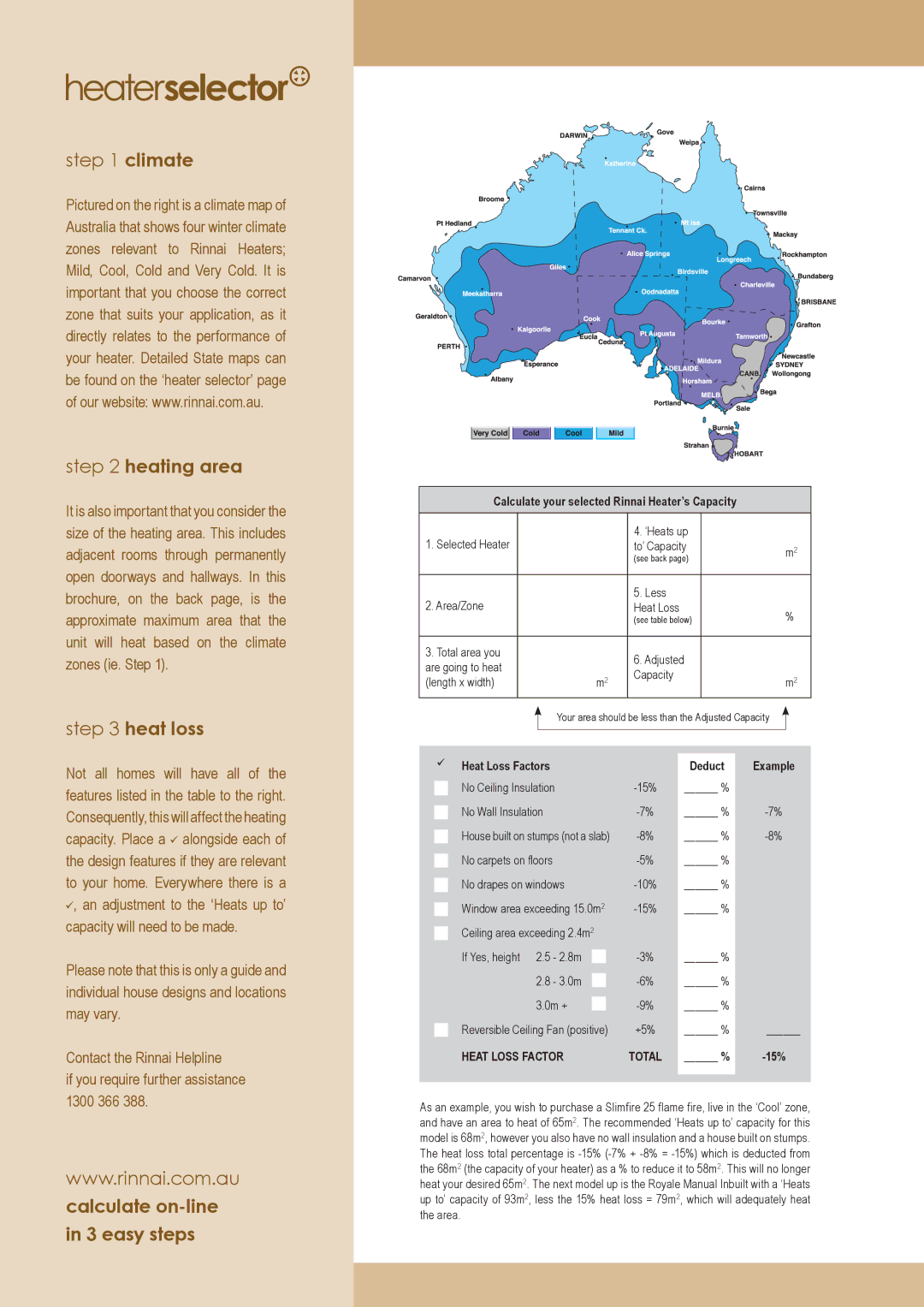FLAME FIRES specifications
Rinnai FLAME FIRES represent a remarkable advancement in home heating solutions, blending aesthetic appeal with cutting-edge technology. These high-quality gas fireplaces are designed to provide warmth while enhancing the visual ambience of any space.One of the main characteristics of Rinnai FLAME FIRES is their elegance and versatility in design. With a sleek, modern appearance, these fireplaces can seamlessly integrate into both traditional and contemporary home interiors. Homeowners can choose from various styles, including built-in options, to suit their individual preferences and room configurations.
A standout feature of Rinnai FLAME FIRES is their innovative flame technology. Utilizing state-of-the-art gas combustion systems, these fireplaces produce vibrant, realistic flames that can be adjusted to create the perfect atmosphere. The flames are designed to look lifelike, providing both heat and an inviting visual centerpiece for gatherings.
Another key feature is the impressive energy efficiency of Rinnai FLAME FIRES. Many models are engineered to deliver maximum heat output while minimizing gas consumption. This efficiency not only aids in reducing energy bills but also supports environmentally friendly living, as it lowers the overall carbon footprint associated with home heating.
Rinnai also prioritizes safety with advanced features integrated into FLAME FIRES. These include flame detection systems and automatic shut-off mechanisms that provide peace of mind for homeowners. Additionally, many units are designed with child-safe screens, ensuring that safety is never compromised.
The ease of use is another significant aspect of Rinnai FLAME FIRES. Each model typically comes equipped with intuitive remote controls or smartphone apps that allow users to regulate flame height, adjust temperatures, and even set timers. This modern technology means that homeowners can enjoy customizable comfort at their fingertips.
For those concerned about maintenance, Rinnai FLAME FIRES are built for convenience. They require minimal upkeep compared to traditional wood-burning fireplaces, translating to more time spent enjoying the warmth and ambiance rather than servicing the unit.
Ultimately, Rinnai FLAME FIRES reflect the perfect balance of beauty, efficiency, and safety, making them an exceptional choice for anyone looking to enhance their home heating experience while enjoying the all-important aspect of design.

